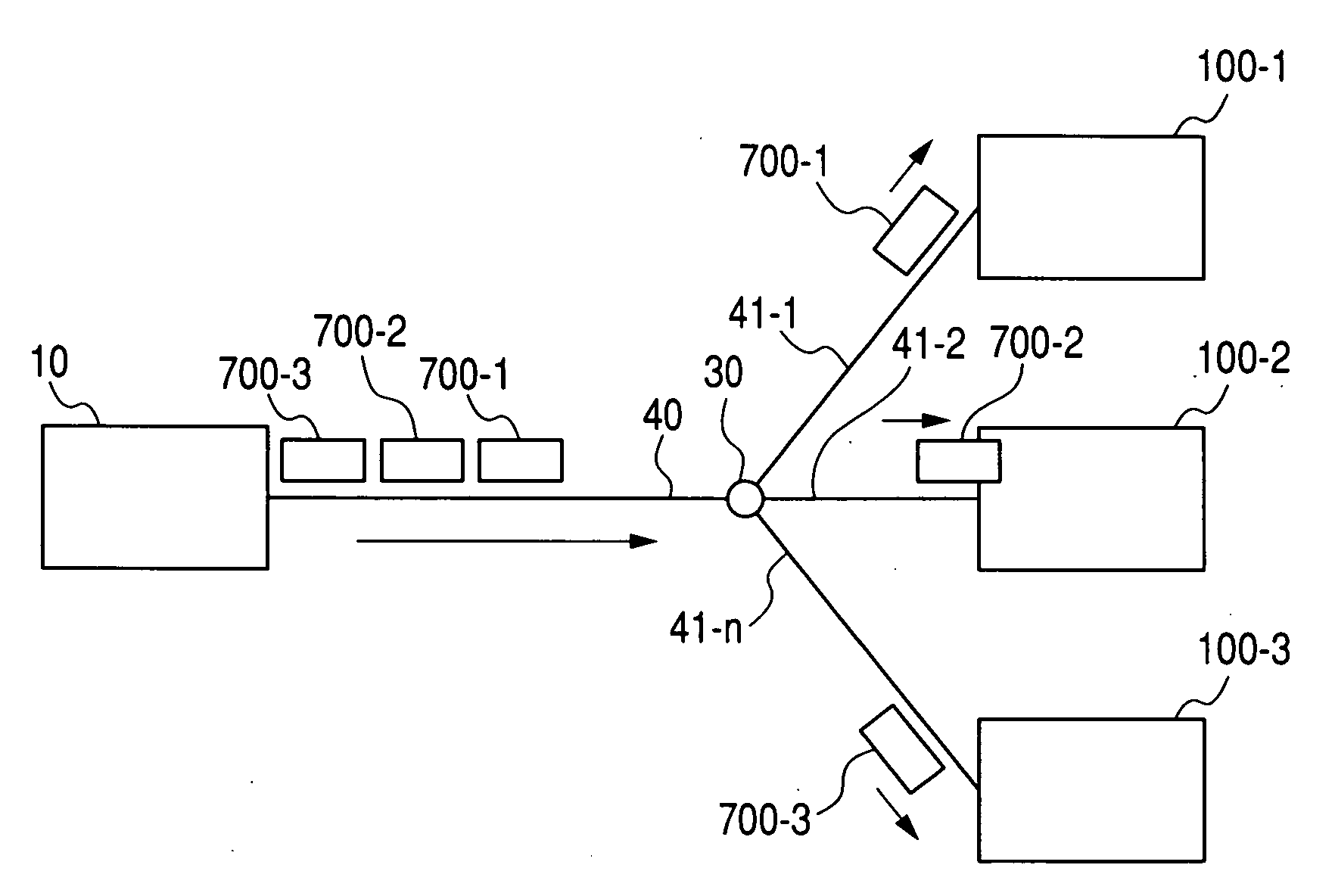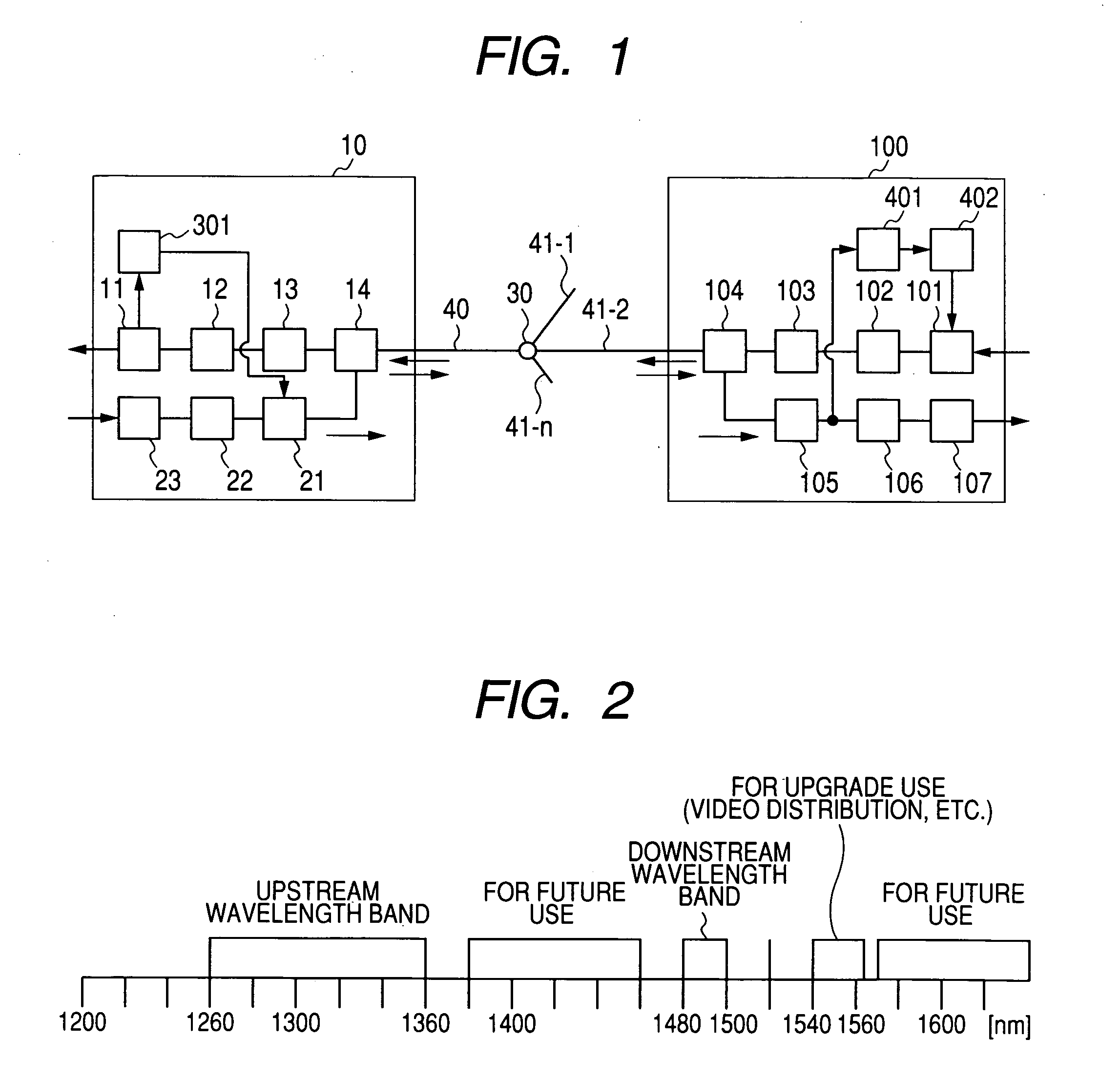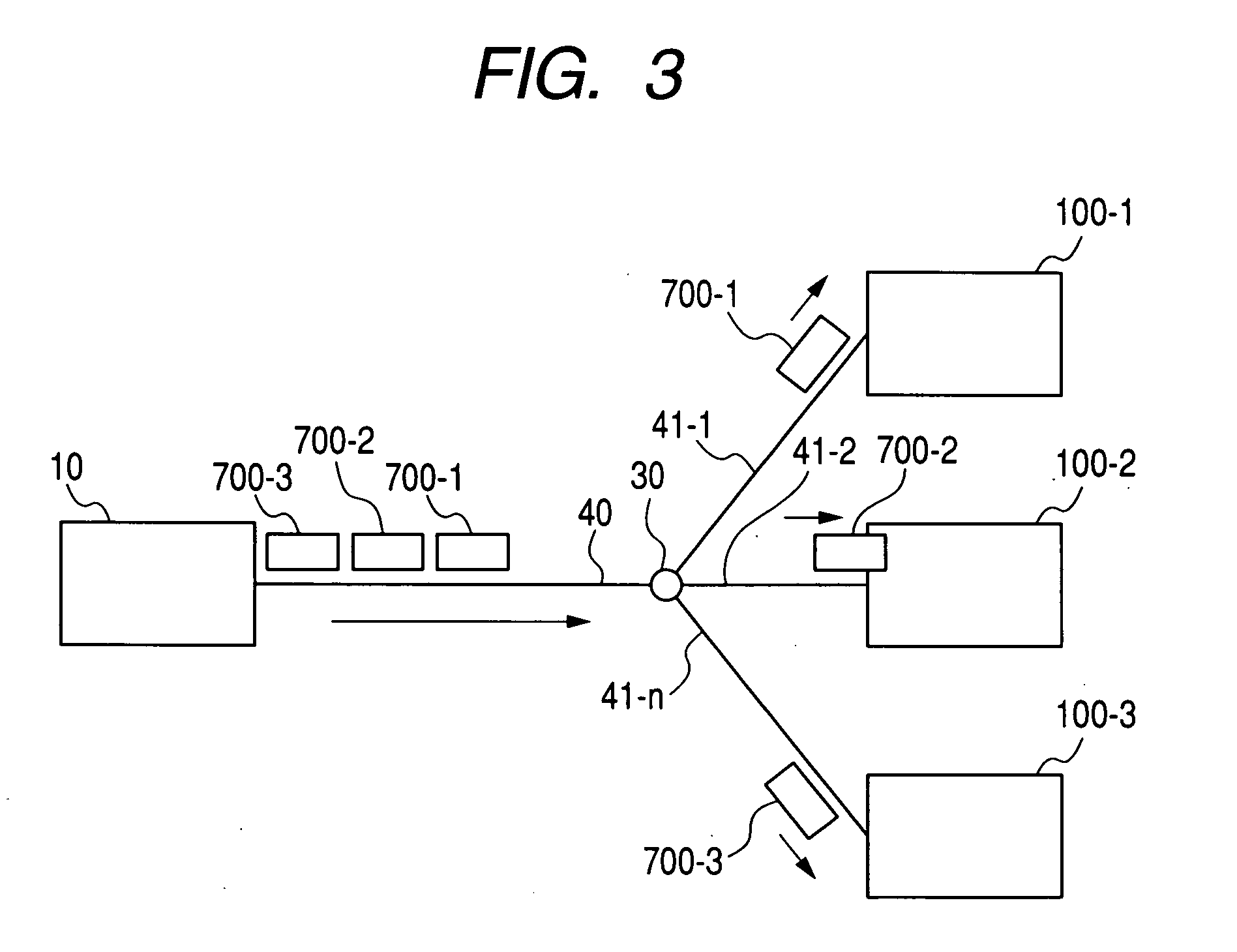Network system, optical line terminating apparatus, and optical network apparatus
a network system and optical line technology, applied in the field of optical communication systems, can solve the problems of significant limit in transmission speed and transmission distance deterioration of receive sensitivity, etc., and achieve the effects of simple and inexpensive, excellent transmission quality, and low power consumption
- Summary
- Abstract
- Description
- Claims
- Application Information
AI Technical Summary
Benefits of technology
Problems solved by technology
Method used
Image
Examples
Embodiment Construction
[0020]Hereinafter, embodiments of the present invention will be described in detail with reference to accompanying drawings.
[0021]FIG. 1 shows a structure of the PON system according to the present invention. The PON system includes an optical communication apparatus (OLT) transmitter / receiver 10 which is placed on the side of a central office, and one or more optical communication subscriber apparatus (ONU) transmitters / receivers 100 on the side of users. Those apparatuses are connected together by optical fibers 40 and 41, and an optical splitter 30. The OLT transmitter / receiver 10 includes a WDM 14, an optical receiver 13, a reception analog front end 12, a reception logic module 11, a transmission logic module 23, a transmission analog front end 22, a light source with modulation function 21, and an output power controller 301. The ONU transmitter / receiver 100 includes a WDM 104, an optical receiver 105, a reception analog front end 106, a reception logic module 107, a transmiss...
PUM
 Login to View More
Login to View More Abstract
Description
Claims
Application Information
 Login to View More
Login to View More - R&D
- Intellectual Property
- Life Sciences
- Materials
- Tech Scout
- Unparalleled Data Quality
- Higher Quality Content
- 60% Fewer Hallucinations
Browse by: Latest US Patents, China's latest patents, Technical Efficacy Thesaurus, Application Domain, Technology Topic, Popular Technical Reports.
© 2025 PatSnap. All rights reserved.Legal|Privacy policy|Modern Slavery Act Transparency Statement|Sitemap|About US| Contact US: help@patsnap.com



